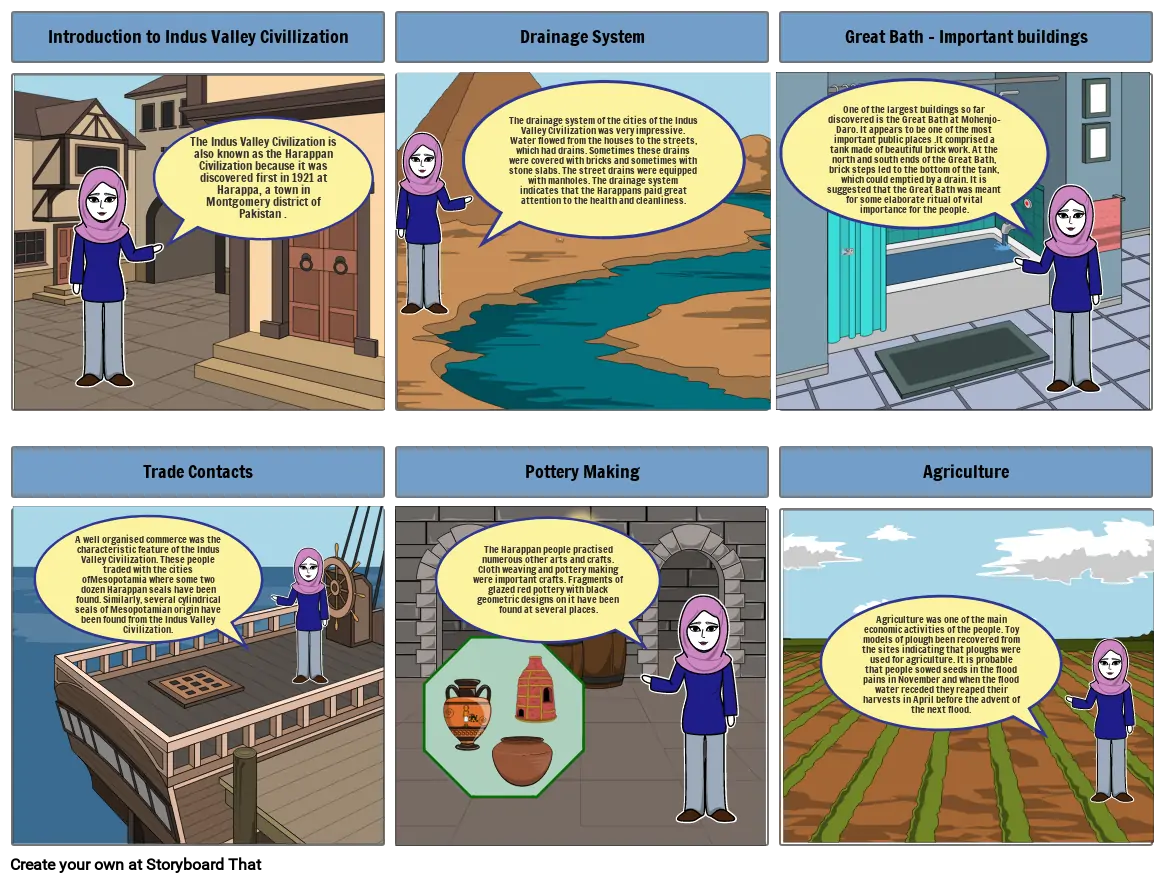Unknown Story

Testo Storyboard
- Introduction to Indus Valley Civillization
- The Indus Valley Civilization is also known as the Harappan Civilization because it was discovered first in 1921 at Harappa, a town in Montgomery district of Pakistan .
- Drainage System
- The drainage system of the cities of the Indus Valley Civilization was very impressive. Water flowed from the houses to the streets, which had drains. Sometimes these drains were covered with bricks and sometimes with stone slabs. The street drains were equipped with manholes. The drainage system indicates that the Harappans paid great attention to the health and cleanliness.
- Great Bath - Important buildings
- One of the largest buildings so far discovered is the Great Bath at Mohenjo-Daro. It appears to be one of the most important public places .It comprised a tank made of beautiful brick work. At the north and south ends of the Great Bath, brick steps led to the bottom of the tank, which could emptied by a drain. It is suggested that the Great Bath was meant for some elaborate ritual of vital importance for the people.
- Trade Contacts
- A well organised commerce was the characteristic feature of the Indus Valley Civilization. These people traded with the cities ofMesopotamia where some two dozen Harappan seals have been found. Similarly, several cylindrical seals of Mesopotamian origin have been found from the Indus Valley Civilization.
- Pottery Making
- The Harappan people practised numerous other arts and crafts. Cloth weaving and pottery making were important crafts. Fragments of glazed red pottery with black geometric designs on it have been found at several places.
- Agriculture
- Agriculture was one of the main economic activities of the people. Toy models of plough been recovered from the sites indicating that ploughs were used for agriculture. It is probable that people sowed seeds in the flood pains in November and when the flood water receded they reaped their harvests in April before the advent of the next flood.
Oltre 30 milioni di storyboard creati

